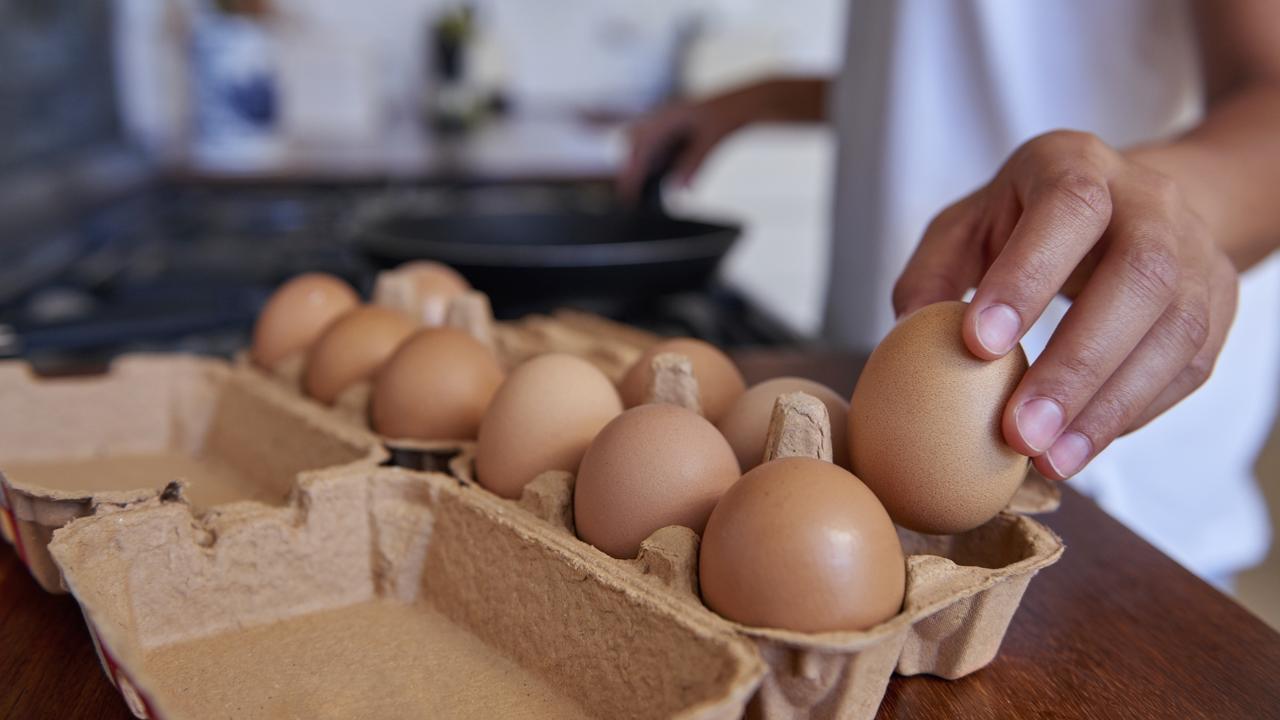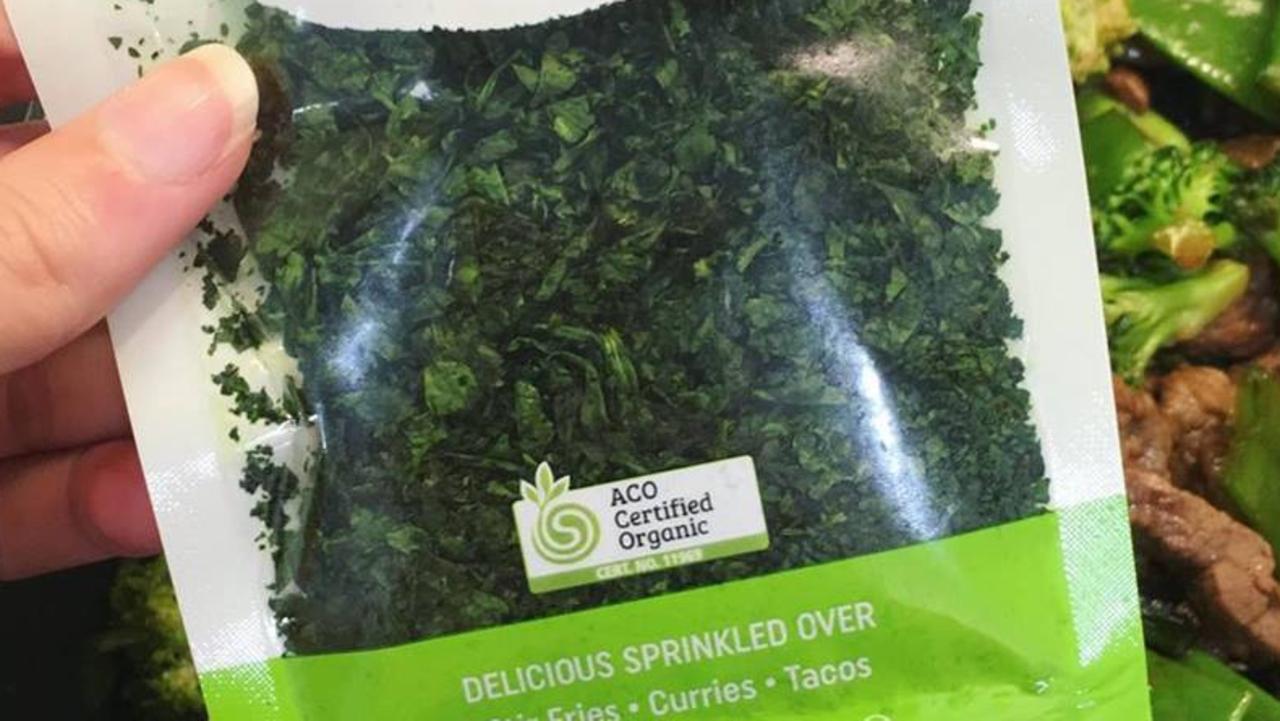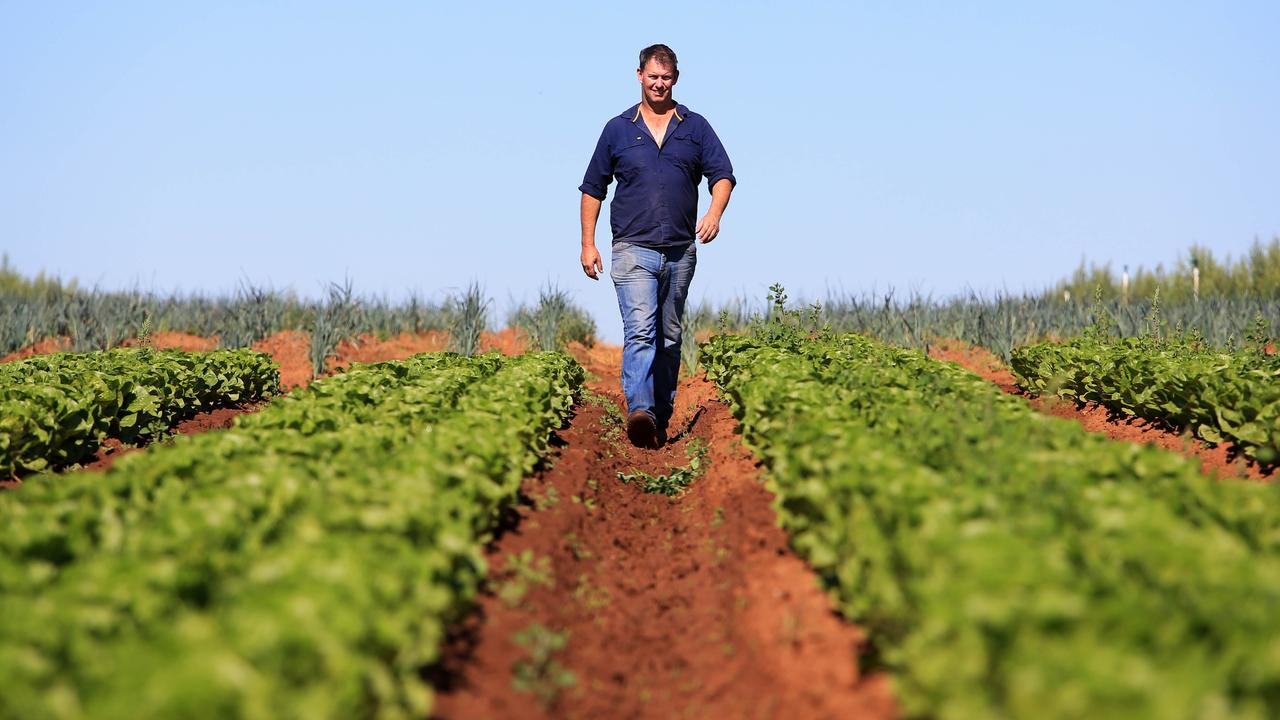Is buying organic food a waste of money?
SHOPPERS continue to pay more for organic food in Australia but are there any benefits to buying this premium product?
NO RESEARCH has been done to prove that there are any health benefits to eating organic food but that hasn’t stopped about 60 per cent of households in Australia from buying it.
Research commissioned by Australian Organic showed nearly 40 per cent of those who buy organic food, have increased the amount of money they spent on it in the past year.
While the heath benefits haven’t been proven, there are many who believe it is better for them.
Professor of health service at RMIT, Marc Cohen said commonsense would suggest “eating less poison is good for you”.
One of the main advantages of organic food is that it is grown without pesticides and antibiotics.
Prof Cohen, who is also a medical doctor, said he had done some research that found eating a diet of 80 per cent organic food for one week reduced the amount of pesticides in people’s urine by 90 per cent.
But surprisingly, the theory that eating less pesticides is good for you has never been tested.
Prof Cohen said a study in Europe found children who ate organic food potentially had less asthma and allergies but doing a double blind study to confirm this was difficult.
Research suggests that organic food has less pesticides, less antibiotic resistant bacteria and higher phytonutrients but the positive health impacts of this in humans has not been studied.
Despite the lack of clear evidence of beneficial health impacts, Prof Cohan said organic foods were worth buying because they supported healthy water and land management, consuming less synthetic chemicals, toxic pesticides and fungicides as well as not consuming genetically modified organisms or nanoparticles.
“There’s also potential taste benefits,” he said.
Prof Cohen said organic vegetables had to produce their own chemicals to keep away pests and their roots had to grow further to get enough nutrients. This sees the production of more phytonutrients and flavonoids that give food its taste.
“That’s why you see big tomatoes (that are not organic) but they taste like water,” he said.
For those who can’t afford to buy all organic produce, Prof Cohen said there were certainly foods people should prioritise.
Among fruits and vegetables, it’s better to buy organic for produce like leafy greens, where the part that’s eaten is exposed directly to pests and pesticides. This includes apples, salad greens and berries.
It’s also good to eat organic meat and dairy because toxins are concentrated up the food chain.
“A cow eats of lot of grass, those chemicals then get concentrated in the cow and the cow’s milk,” Prof Cohen said.

Fruits and vegies that are not so important to buy organic include avocados and pineapples because they have a thick skin that you do not eat and pests find it hard to penetrate, so less pesticides are needed.
If you are willing to shell out more for organic foods, it’s also important to make sure you get what you’re paying for. About 12 per cent of those surveyed for Australian Organic were highly committed purchasers who spent about 40 per cent of their household food spend on organic products.
Unfortunately there is no regulation of the term “organic” in Australia, meaning anyone can claim a product is organic as long as they’re using natural methods or using at least one natural ingredient.
Australian Certified Organic is trying to tackle this by developing standards and a bud logo to identify those who meet their criteria.
Large retailers such as Coles and Woolworths require their suppliers to be certified organic but in places like farmers markets, unscrupulous operators have passed off conventionally grown produce as organic.
“Consumers should always be wary,” Australian Organic chairman Andy Monk told news.com.au. “Organic is a premium product claim and you should always look for the bud logo or a reference that says it is certified organic.”
If no logo is displayed Mr Monk says shoppers should ask stallholders or retailers if they are certified organic, and be wary if they say it’s too expensive.

“Certification is quite cheap compared to the cost of farming organically,” he said. “The cost is similar to what it costs to register a farm ute so there’s no reason why a farmer should not have certification.”
Farmers Market Association president Wayne Shields agreed that certification was important.
“If they don’t have certification I would question their interpretation of organic,” the Victorian farmer said.
“Some think not using pesticides is organic but there is more to it than that, they might use herbicides and fungicides, or synthetic fertilisers.”
Mr Shields said he knew of resellers who buy produce from conventional farmers and then pass the produce off as organic. It was a big problem at markets in NSW and Queensland in particular, whose laws were not as strict as they are in Victoria.
Mr Shields is one of the largest suppliers of certified organic vegetables and fruits. He switched to organic farming about 10 years ago after he was put out of business by chemical contamination.
“I was following the rules and used a chemical on my crops but what was in the bottle was not what it said on the label,” he said. “It killed half my crops and ended putting me out of business.”
The incident, which followed other bad experiences with chemicals, led him to organic farming.
“I enjoyed being a conventional grower but I enjoy organic farming a lot more,” he said. “I started very small and went direct to consumers. It opened my eyes to what customers wanted — they definitely want their food as clean as they can get it.”
Instead of relying on things like pesticides to kill weeds, Mr Shields now has a “different toolbox” to fall back on.
“You learn what to grow in what soil, at what time of year. You make mechanical equipment to do your weeding, robotics is very exciting.
“You’ve got to nut out your own way and good organic growers are blazing a trail and developing new techniques, they are finding different ways to do things.”





